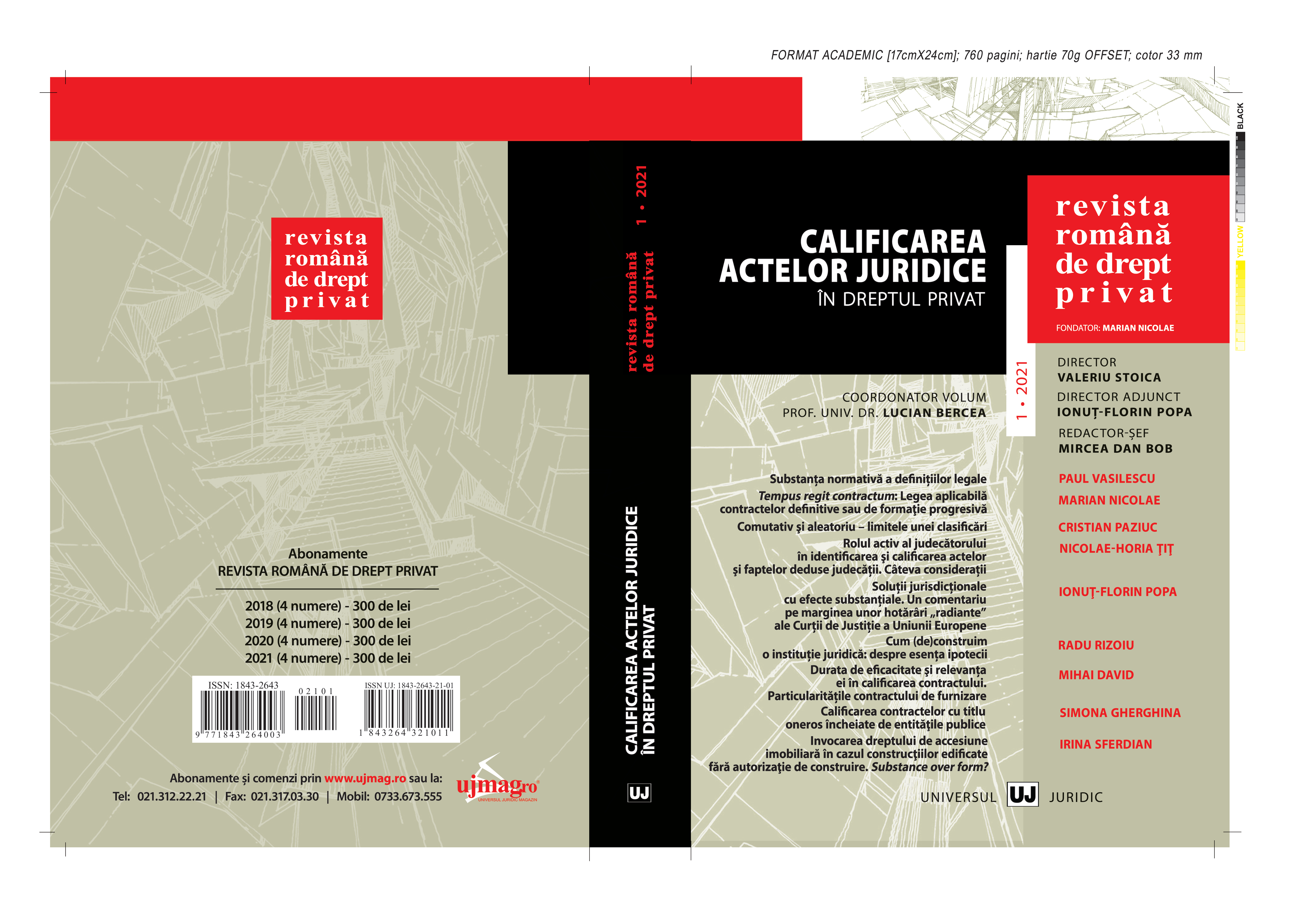Probleme privind executarea silită împotriva moştenitorilor. O analiză critică a orientărilor jurisprudenţiale
Issues regarding the enforcement against heirs. A critical analysis of the jurisprudential trends
Author(s): Marieta Avram, Cristian David SamoilăSubject(s): Law, Constitution, Jurisprudence, Civil Law
Published by: Universul Juridic
Keywords: foreclosure; heirs; rightful possession; guardian for the enforcement; acceptance of inheritance; debate of the inheritance;
Summary/Abstract: In Roman law, legal counsels discussed about the moment when the transfer of assets of the deceased person takes place toward the persons having accepted the heritage. At present, the law [Article 1.114 (1) of the Civil Code] establishes that the acceptance of the succession, which may occur within the deadline of exercising the inheritance option, consolidates the transfer which took place by operation of law upon death. Nevertheless, both the provisions of Article 1.136 of the Civil Code and the provisions of Articles 687 and 688 of the Code of Civil Procedure give the opportunity of those relying on any rights against inheritance, to request the appointment of a guardian of succession, who shall stand trial (enforcement) instead of those who, later, will acquire the capacity of heirs of the deceased person. If, as regards the appointment of the guardian of succession by the notary public, there is no doubt that first, it is necessary to file a claim for opening the notarial succession procedure [Article 103 (1) and Article 104 (3) of the Law no. 36/1995 on notaries public and notarial activities], in judicial practice, the appointment of the special guardian for enforcement generated distinct interpretations regarding the moment when this procedure should be complied with. The function of representation which is performed by the guardian appointed according to the provisions of the Civil Code or, as the case may be, of the Code of Civil Procedure, ends on the date when at least one successor has accepted inheritance. Moreover, the new Civil Code keeps the distinction between heirs enjoying rightful possession and those not enjoying rightful possession, the institution of the rightful possession representing, in turn, a subject of certain different interpretations. This is not only a doctrine related dispute, since the adoption of a certain opinion leads to practical consequences diametrically opposed to those arising from the adoption of the contrary opinion. That is why, it may be stated once again that the correct application of the institution of substantive law represents the essential criteria in relation to which the qualitative level of the civil proceedings is appreciated. This study aims at such an approach, its purpose being for the enforceable procedure to be conducted in a lawful manner, as soon as possible.
Journal: Revista Română de Drept Privat
- Issue Year: 2021
- Issue No: 01
- Page Range: 629-652
- Page Count: 24
- Language: Romanian
- Content File-PDF

